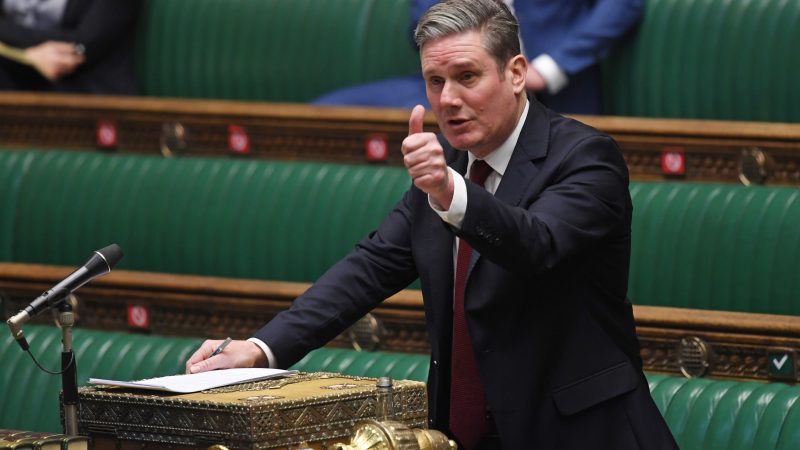
For all the emotion at the heart of the debate on patriotism and national identity, it is usually helpful to start with the facts. Studies by Sunder Katwala’s British Future think tank consistently show that the vast majority of Britons are “proud to be British”, and that the figure – around 75% – is consistent across both ethnic minority Britons and the white British. Yet, according to YouGov, only 35% of the population think Labour is patriotic, compared to 55% who view Tories as such.
This is why the reactions to Republic’s leaked strategy document from a couple of the party’s backbench MPs, as well as the usual suspects from the commentariat, were as intellectually foolish as they were politically naive. It seems an obvious, logical point, but how on earth could any party possibly think it can earn the right to lead a country it doesn’t appear to love and believe in? A Labour Party that believes passionately in the British state as a force for good, at home and abroad, should be viewed not as remotely controversial but utterly essential.
The more important questions are centred on what comes next. A common response to Republic’s findings from sceptics has been to accept the recommendations with a caveat: ‘this is fine, as long as Labour gets to shape how patriotism is defined’. There is an awful lot of merit in this argument – and it is reflective of the English Labour Network’s work to help shape the more inclusive, civic sense of shared English identity that is emerging. The argument comes with a health warning, however. There are a number of public tests for patriotism that Labour must first show it can meet. These are the fundamentals, the non-negotiables, that are neither right-wing nor left-wing but simply the first duties of government – before values or ideology come into the equation.
The first of these is the duty to protect Britain and its people. An obvious statement, but going into the last election Savanta ComRes polling showed that Labour trailed the Conservatives by 26 points on national security. The second is to stand up for Britain’s values and interests internationally. Again, barely an area of debate, until Jeremy Corbyn responded in the way that he did to the Salisbury poisonings, suggesting a worldview at odds with the vast majority of the British population. A third critical element is the test of whether the British economy will be in safe hands under the Labour leader. Despite austerity and Brexit, our party trailed by over 20 points on this measure before Keir Starmer took charge. Get these right and we might just gain an ear for our own patriotic agenda.
Even this first step is difficult. Three years from an election, there is little interest in Labour’s agenda, while the ‘rally round the flag’ response to the pandemic from ‘Red Wall’ voters in particular makes it hard for the leadership to pick the fights with Boris Johnson that gain headlines. This is why using symbols like the flag, combined with plugging into the news agenda, will prove every bit as effective as any big vision speech. Keir is making progress. His commitment to making Britain “the best place to grow up in and the best place to grow old in” should be repeated ad nauseum between now and the next election – a fantastic framing for future policy.
On national security, Johnson’s failure to quickly introduce hotel quarantine at our borders has allowed our party to demonstrate our commitment not just to health security but to border control, a key duty of government whatever one’s favoured migration system. And John Healey is playing a blinder in strengthening the relationship between Labour and our armed forces. ‘Defence’ is not a synonym for ‘illegal wars’ – it is a critical contributor to our peace and prosperity.
Keir’s speech at the Fabian Society conference last month on Britain’s role in the world was pitch-perfect. He made the patriotic case for Britain working with our international allies to stand up for our shared priorities in the face of increasingly hostile authoritarian regimes, and in doing so illustrated how our values and interests go hand in hand.
This leaves the economy. Forget debating flags, this is where the serious conversation should start. How can Labour show itself as an alternative government with a plan to ‘build back fairer’ without being cast as profligate spenders? Do Rishi Sunak’s spending plans offer a shift in narrative around how much the state can achieve, or will the public fear increasing debt even further? It would be all too easy to jump to the kind of rose-tinted conclusions that the party reached following the crash of 2008.
What is certain is that, this year, Labour will need a strong and clear message on what the recovery must look like, how it is paid for and a plan to cut through the noise and be heard. A starting point must be to recognise the critical role of business. Sensibly, competent Keir has started Labour’s long walk back to credibility. It will take time for any rebrand to set in, but through establishing Labour as a party that believes in Britain, is strong on security and is trusted on the economy, we will soon be heard again. After all, the foundations of patriotism are timeless – but the future is Labour’s to build.




More from LabourList
‘What Batley and Spen taught me about standing up to divisive politics’
‘Security in the 21st century means more than just defence’
‘Better the devil you know’: what Gorton and Denton voters say about by-election